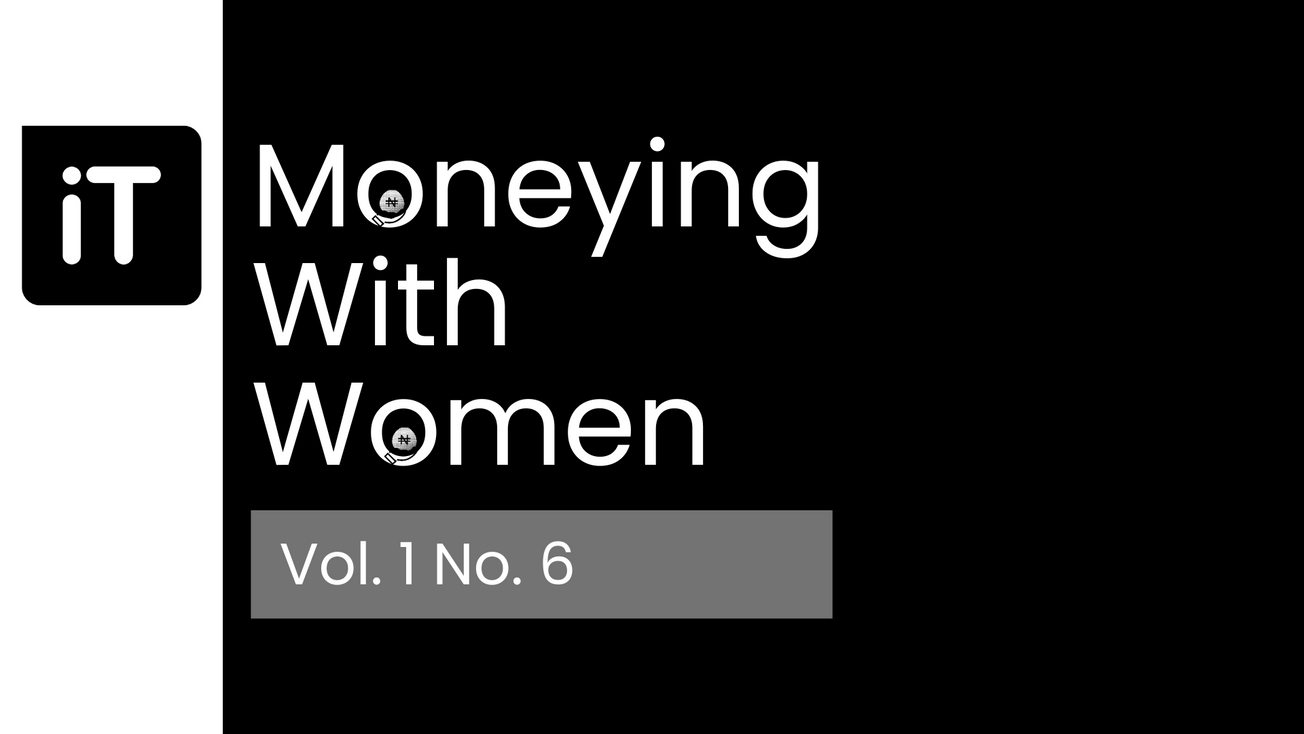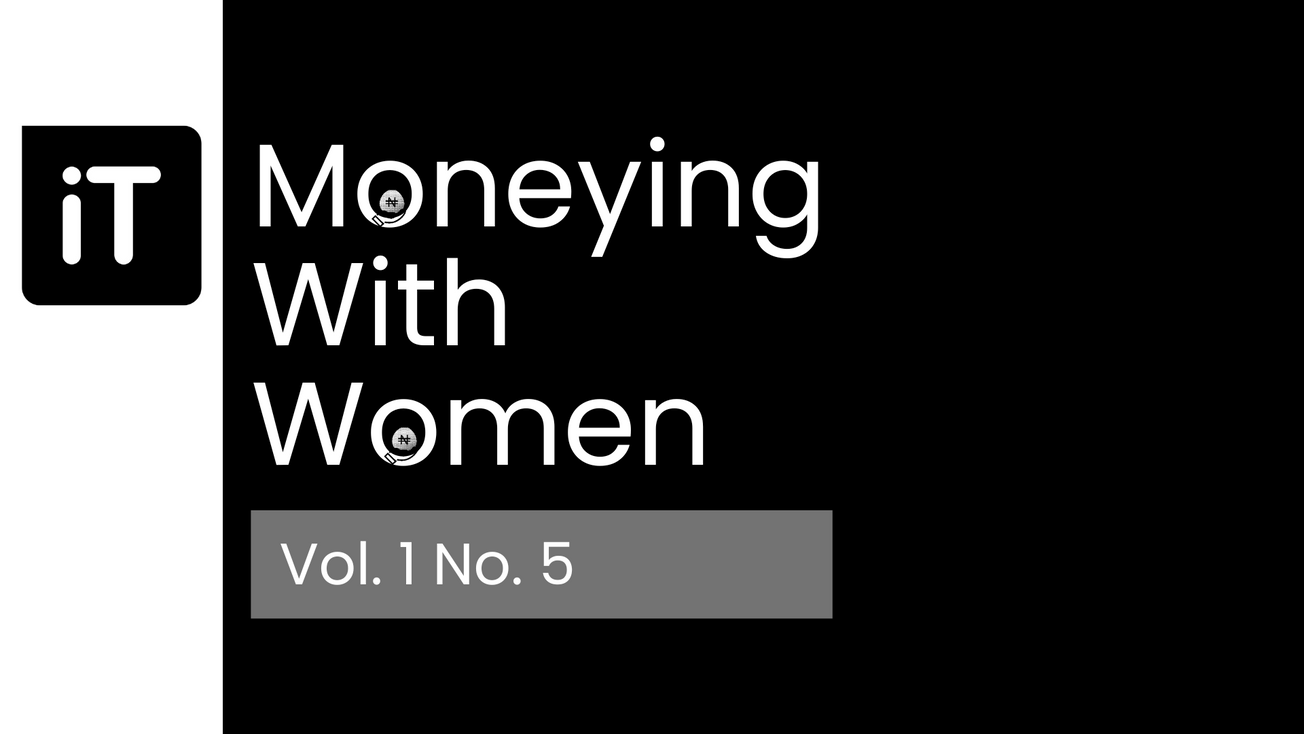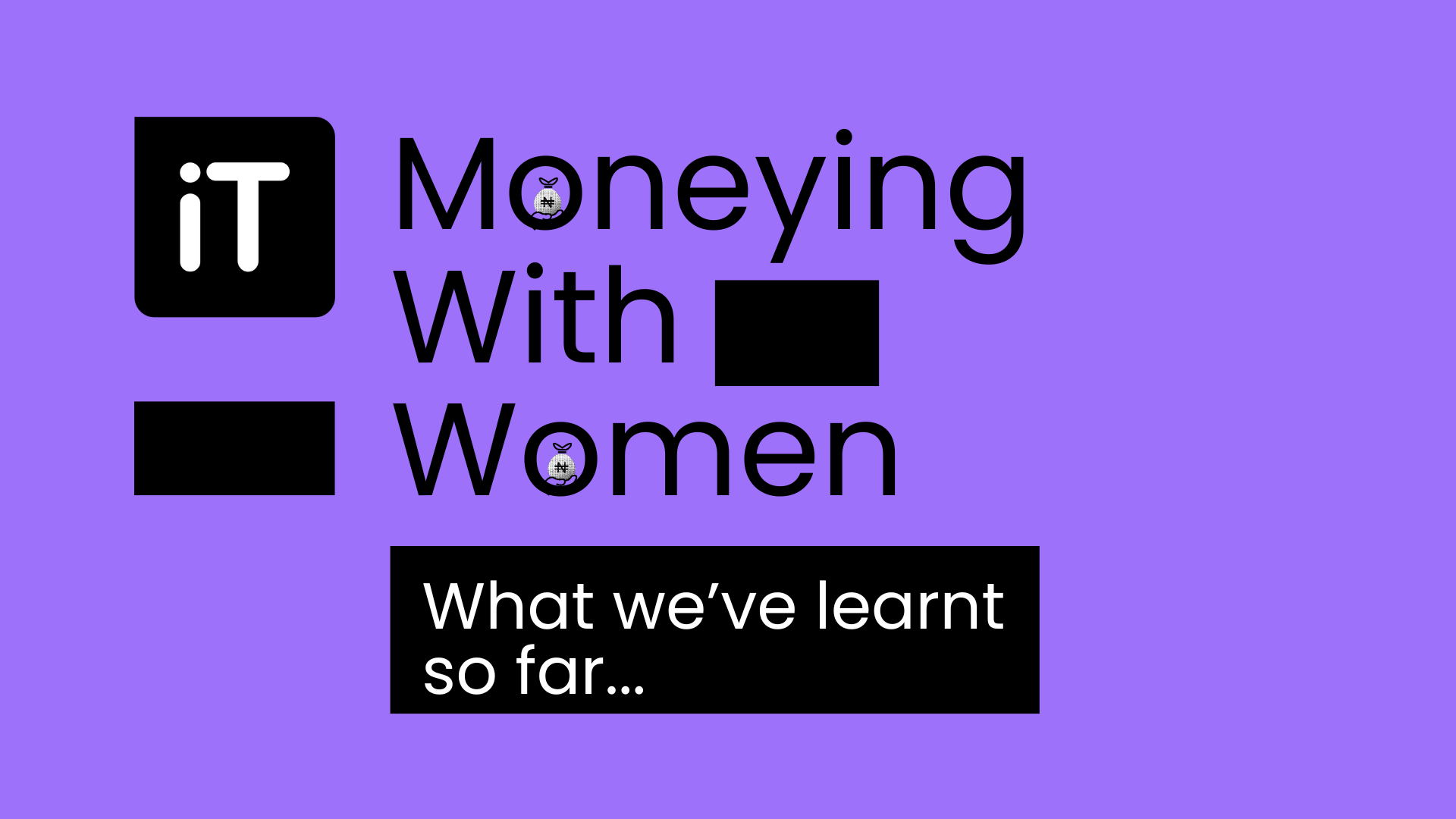Globally, the gender pay gap remains an ongoing conversation because of how much it impacts the well-being and advancement of women. According to the World Economic Forum, the global gender pay gap is at about 23%, this implies that women make only 77 cents for every dollar a man makes - as shown by a UNWomen report.
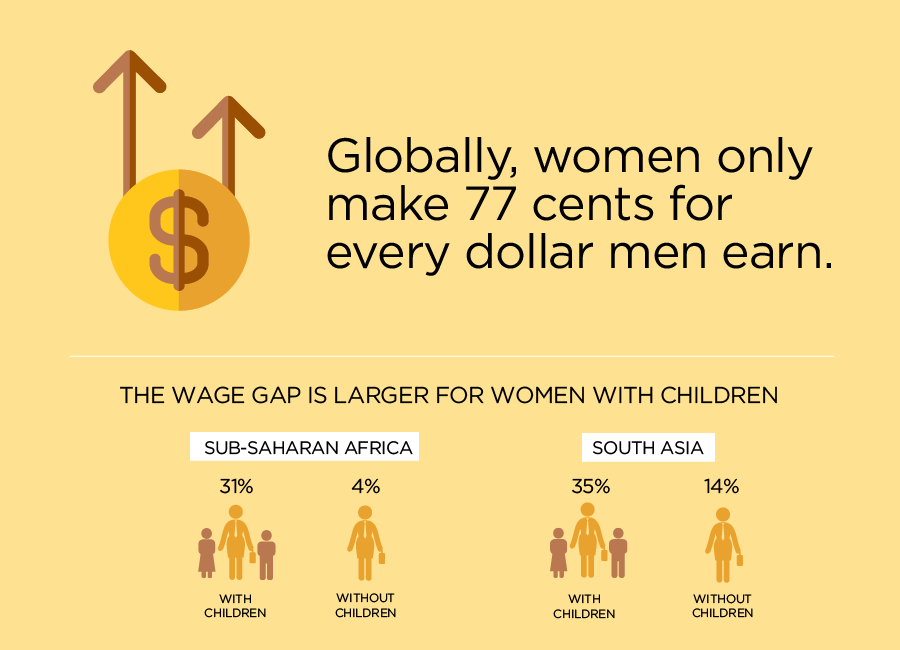
While this decade has seen more participation of women in the workplace, participation only has not and will not bridge the gap. At the current pace, the WEF estimates that it will take 102 years to bridge the pay gap in sub-saharan Africa, that would be in the year 2125 and that is a long time.
Why does it matter?
The gender pay gap is not just a statistic, it is the reality of real women. While at its core, the gender pay gap is an equality and equity conversation, it is also a well-being and development conversation. Bridging the gender pay gap could significantly accelerate women’s wellbeing and their GDP contribution from 37% where it currently is according to the World Bank. This would not only empower families but also create more opportunities and prosperity for all. The gender pay gap is also a reflection of other factors like occupation, worker education, etc. more than just equal pay for equal work.
A peep into Nigeria
Zooming into Nigeria, the general income gap stands at about 36.3%, however, more overwhelming is the gap that exists in the C-Suite of the private sector. A June 2023 publication by Business Day documents the income of Nigeria’s highest paid male and female CEOs. When placed side by side, the gap is alarming, with the highest paid male CEO earning about 7.73 times (773%) what the highest paid female CEO earns. Here is a snapshot of the *Raw income gap of the 4 highest paid CEOs in Nigeria by gender.
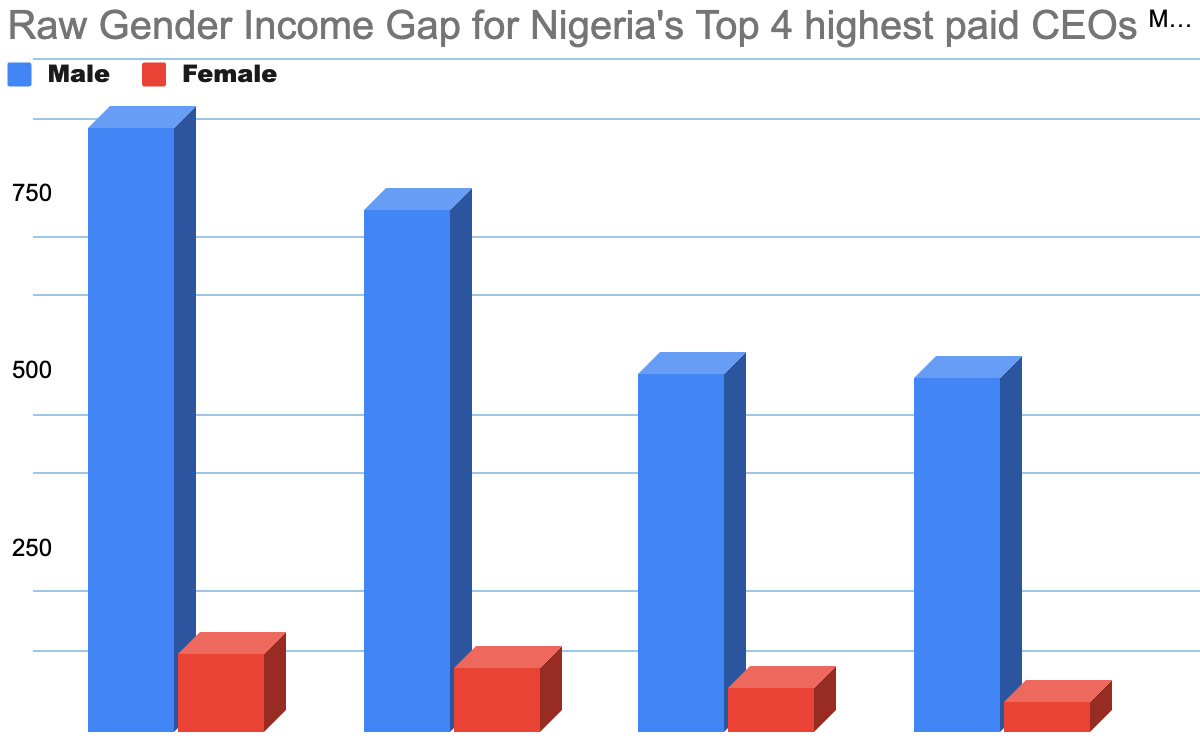
*Raw income gap means that companies/industries they work at and other worker characteristics are unaccounted for.
Why these issues?
- Cultural barriers continue to exist that limit women’s earning potential.
- Women are missing at the seniority levels of many companies.
- Many women are not in high paying industries but instead in lower paid/lower skilled work and also in mid/low income sectors
- Systemic issues within companies such as lack of pay transparency and politics that undermine women continue to exist
Bridging the Gap
Equal Pay/Opportunity Policies:
This is a low-hanging fruit that could quickly address the gender pay gap. When equal pay policies are binding, pay transparency is encouraged leaving almost no room for a gap. Women should also have access to the same opportunities that men have which empower them to earn better.
Career coaching for early career women:
With many women in lower paid work and lower income sectors/companies, there is a need for early career coaching for women to point them in the direction they might not have been looking. It has also been statistically shown that many women do not negotiate their salaries, benefits, etc. career coaching and mentorship can bridge this gap.
More representation of women on boards and in senior positions:
Representation matters and the equitable representation of women of company boards and senior positions where they are able to influence policies and make key decisions will ultimately improve the stance of other women in those firms.
Accelerating the impact of women empowerment projects:
While this decade has seen a lot of women empowerment projects, these projects and policies that target women need to accelerate their impact. These projects now need to move up and tackle the core limiting issues that today’s women are facing especially in Nigeria. Finally, new empowerment programs should avoid just being ‘pink projects’ and focus on reaching and impacting more women and policies for women.




